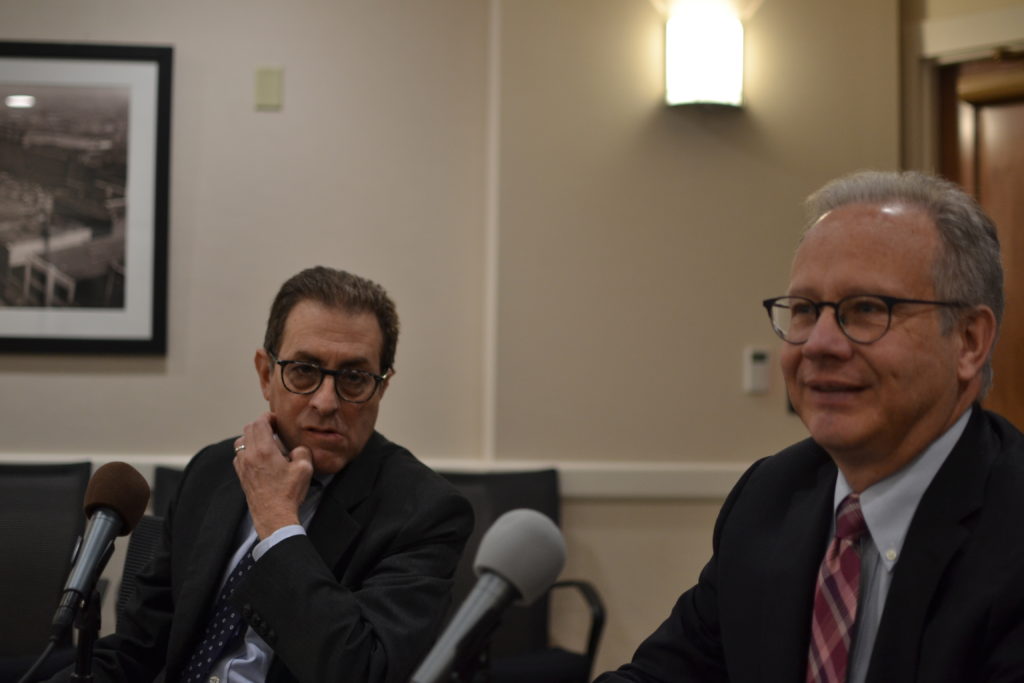
An outside analysis of over 2.5 million traffic stops in Nashville shows they don’t effectively stop crime, leading researchers to suggest that Metro police officers drop the tactic in favor of a new approach that emphasizes engaging community members one-on-one.
In a report presented this afternoon to the Metro Council and other city leaders, the New York-based Policing Project says Nashville’s traffic stop rate is about four times higher than comparable cities, like Denver or New Orleans. Researchers also say that black drivers are significantly more likely to be stopped police, confirming a finding published by local activists two years ago.
The Policing Project says the high number of stops — and the racial disparity in them — arise because traffic enforcement has become one of Metro Police’s main tactics for fighting crime.
That’s even though the stops rarely uncover serious violations. In fact, they’re likely to be counterproductive.
“For years the philosophy in this country to fight crime and violence has been enforce, enforce, enforce,” says Barry Friedman, the Policing Project’s director and one of the report’s authors. “What happened is it alienated communities, and police departments around the country found they weren’t getting cooperation.”
Friedman says officers aren’t necessarily making stops out of racial bias. But Metro Police’s strategy of targeting “high-crime” areas results in more low-income, black drivers getting stopped.
The Policing Project suggests Metro Police adopt more “neighborhood-driven” policing founded on building relationships between police and community members. Friedman says the approach has reduced crime in New York — even after the city abandoned “stop-and-frisk” tactics — and is being explored in Chicago.
Friedman says he’s briefed the department’s leadership, including Chief Steve Anderson, and they’ve been open to it.
“They were, I think, a bit surprised to find the traffic stops weren’t working,” he says. “They are interested in exploring alternatives. They’ll need some help to do that.”
For his part, Mayor David Briley endorsed the report, but he says he wants next steps to be decided by the new Community Oversight Board. That’s the panel approved earlier this month by Nashville voters to review allegations of police misconduct and to make policy recommendations.
“There were some arguments that this report was being used to circumvent them or defeat them or in some way push back against the Community Oversight Board,” Briley says. “And so I just want to make it totally clear, that is not the case.
“We’re going to fully implement — with vigor — the Community Oversight Board. These recommendations will then be taken to the Community Oversight Board, which will work with the chief of police to make sure they get implemented.”
Briley concedes that could mean there won’t be any formal changes to Metro Police’s traffic stop policies until after the board begins meeting next spring.
Unless the department takes action on its own. And in a prepared statement, Police Chief Steve Anderson says he’s ready to do so.
Anderson says he can “appreciate” the finding that traffic stops, at least for non-moving violations like broken tail lights or expired tags, don’t appear to have an impact on crime trends. He also acknowledges such stops might undermine trust in police.
“Just as Nashville continues to evolve, so must our police department’s strategies and partnership efforts to best serve all of our communities,” he says. “While our police officers cannot turn a blind eye to all non-moving equipment and registration violations, we can and will refocus and rededicate ourselves to strengthening community partnerships and engaging neighborhood residents in public safety initiatives that do not make vehicle stops a priority, unless a particular neighborhood is plagued by moving traffic violators and is in need of enforcement.”
Anderson says he’s willing to work with Briley and the Community Oversight Board to develop a new plan for policing.


